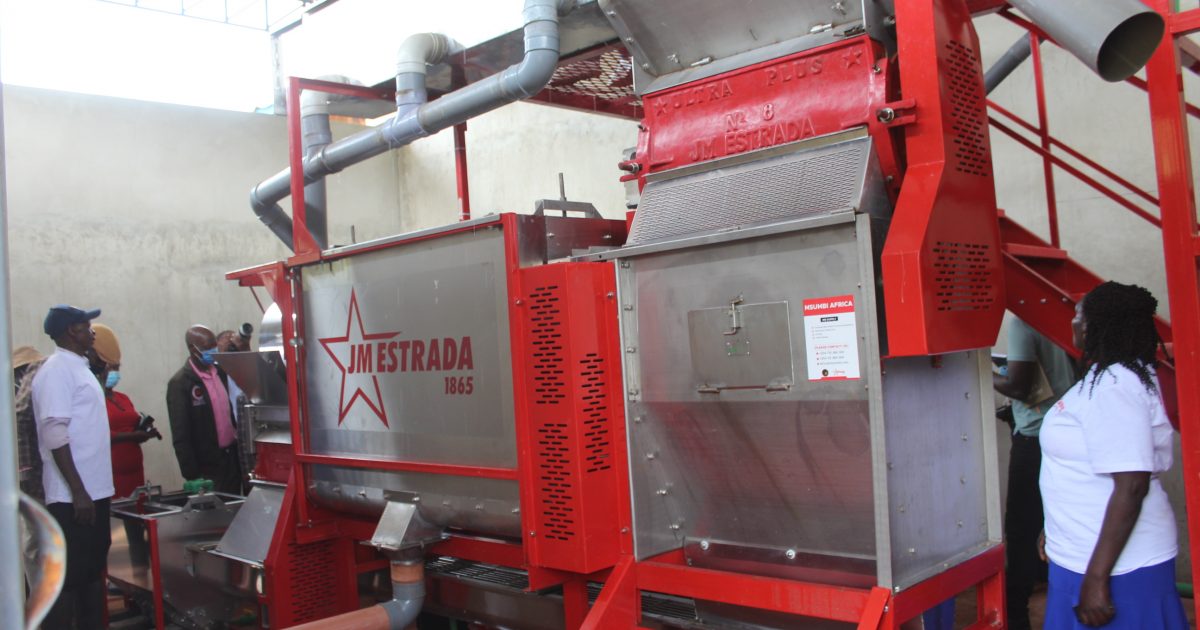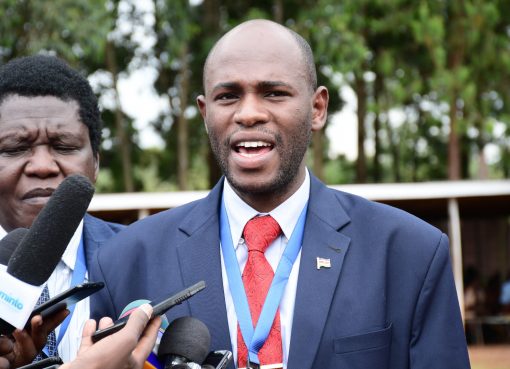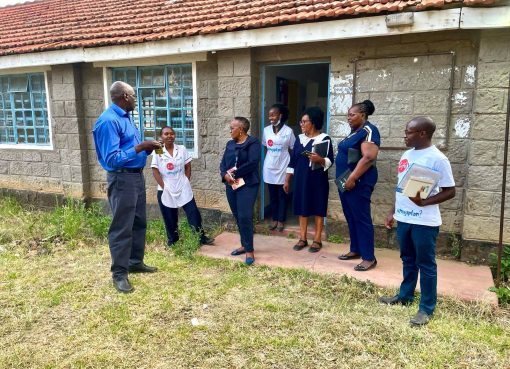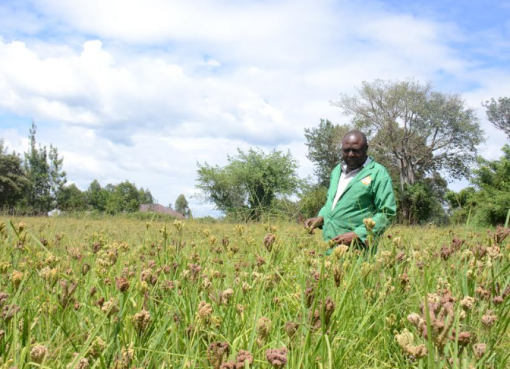Gachatha Farmers’ Cooperative Society in Tetu Sub County has received a major shot in the arm following the installation of a modern eco-pulping machine to coffee farmers valued at Sh6 million.
Speaking during the commissioning of the equipment, Coffee Management Services, CEO, Kamau Kuria, said the machine was a donation courtesy of the European Union, Slovak Aid, Self Help Africa, AgriFi Kenya Challenge Fund and his organization.
Kuria said the machine is expected to bring down the cost of production by about 20 percent as it uses less water compared to the old McKinnon disc-pulper.
The new eco-pulping machine requires only two litres of water to process a kilo of coffee while the McKinnon disc-pulper uses 20 litres to process a similar amount of coffee. “The eco-pulper which we have here is a five ton per hour machine,” he said.
On grading, the official said the machine can rate coffee berries better than the one they had before and few people will be required to operate it and in the process cut down on cost.
“That is a huge saving to these farmers who will be benefitting from this new technology. This means the net payout to the farmer will improve,” he explained as he also predicted that farmers will earn more from their harvest due to a global slump in coffee production.
He further announced plans to partner with the County Government of Nyeri in order to reach the farmers and teach them on how to increase production per tree.
On his part, Gachatha Cooperative Society Chairman, Peter Mathenge, lauded the companies for the donation saying the cooperative has been using an archaic machine installed in 1963.
He was upbeat because the machine will help improve coffee grade, earning farmers more income.
Last week, the Kenya Tea Development Agency (KTDA) in partnership with a local coffee researcher announced plans to start training coffee farmers in Nyeri on best crop husbandry practices.
Speaking in Othaya, KTDA Secretary, Patrick Ngunjiri, together with Bernard Githimu, a coffee researcher, said the initiative will go a long way in boosting coffee production in the area. The aim of the training programme is to ensure that there is an increase in coffee production in Othaya Constituency and eventually the larger Nyeri County.
Ngunjiri further said that they hope to revitalize the coffee sector in the area which has been on the decline over the years due to mismanagement and dwindling prices.
“Farmers have appreciated that coffee is a black gold and therefore there is a need to make much targeted, calculated and very deliberate efforts to bring our farmers back,” he said while addressing the press at Stefano hotel in Othaya town.
In addition, Ngunjiri said that the KTDA cogent plan which will start at the beginning of the next year is to ensure every household benefits from coffee production. “The Kenya Tea Development Agency cogent plan, which will be rolled out at the beginning of next year, will ensure that every household with over 1,000 coffee bushes earns over Sh1million from coffee through improvement of both coffee quality and quantity,” he added.
Global prices for coffee have soared 55 percent this year, thanks to adverse weather in Brazil, a leading coffee producer prompting countries like Colombia to default on sales agreed when prices were lower in order to re-sell the coffee at higher prices.
This is after Brazil experienced drought and frost, leading to a drop in total world production of coffee to 158 million bags, while the demand stands at 172 million bags.
In July this year, Nairobi Coffee Exchange Chief Executive, Daniel Mbithi, said despite high world prices, farmers have binding existing long-term contracts with dealers who sell on their behalf in the world market and who are buying the commodity on an agreed price, set when demand was low.
“Majority of farmers already have contracts with buyers, and dealers even risked buying beans when prices were low, hence making the current situation tricky. The best way for farmers to benefit from this is to renegotiate their contracts with buyers following the global price hike,” said Mbithi.
“Going by the main crop season which ended in April, the farmers were good and celebrating since they had a very good return, but this particular crop season ending this October, we cannot tell, since majority of farmers had entered into contract with dealers when prices were low hence, they should not expect a boom,” he added.
Mbithi was also quick to note that the current low coffee production in Kenya was as a result of low acreage under coffee after some farmers uprooted their trees for other crops, while some never replaced old trees.
Kenya’s coffee production has dipped drastically for the second year running, pushing the country further behind some of Africa’s top producers like Ethiopia and Uganda. By the end of September this year, Kenya’s coffee production stood at a paltry of 600,000 metric tons.
The country produces 400 kilograms per hectare compared to other countries which produce up to two tonnes per hectare.
By Samuel Maina





